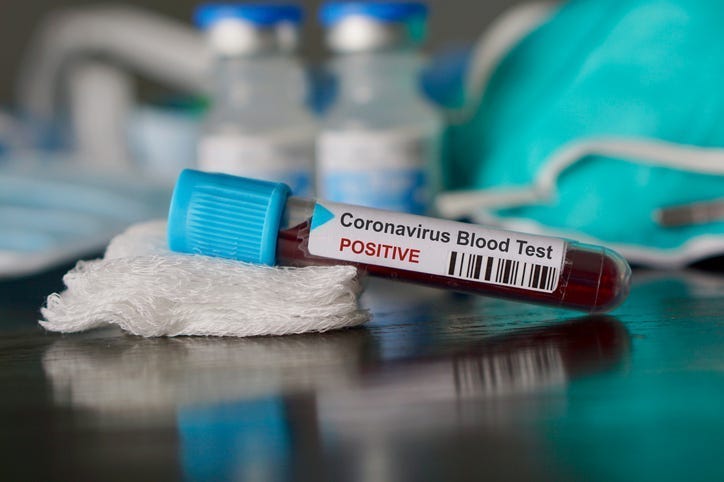
NEW YORK (WCBS 880) — Gov. Andrew Cuomo and other officials say the key to containing coronavirus is to increase the number of tests that are available to better assess the situation.
Northwell Health is the largest health care provider and employer in New York state. Its president and CEO Michael Dowling joined WCBS 880 to discuss their testing efforts.
Paul Murnane: What can you tell us about efforts to try and speed up the testing? We didn't hear anything from the president last night about expanding testing but Northwell Health here at least is trying to get things stepped up a bit.
Dowling: I was waiting last night during his comments to see if he would say something about this but he did not unfortunately. We have the largest lab in the region. We started testing last Sunday. Yesterday we did about 160 tests. It's important to keep in mind that you can't turn on the switch on this as quickly as people think because you've got to get all the computers, all the analyzers, all of the technology working correctly so that the test is perfect when you do the test.
But we will be doing today probably 300-350 tests. We will be moving up a couple hundred a day and when we fully automate all the technology we will be able to do a couple of thousand tests a day. That probably won't happen for another week to 10 days because it has to be ramped up incrementally, it can't just be done all at once. Also a lot of the other labs around the state are also planning to start testing and of course as everybody realizes the more tests you do the more confirmed cases you're going to find. So however many cases we have today in the state is going to go up based upon the more tests that you do. So this issue is going to get worse before it gets better.
Wayne Cabot: We know there is no vaccine for COVID-19 we also hear there's no treatment. Is that changing? Do we have any news on that?
Dowling: There's no vaccine and obviously you treat people with the current mechanisms that people have but there's no specific vaccine for this and in all likelihood there is no vaccine that would become available for at least 12 months and probably more. These things take a long period of time, but I know that the pharma companies and others are working on this diligently to do it as quickly as possible. So what to do is you test those people that are sick, you don't want to test everybody. You have to be very, very careful and the public should realize that just because we have a public health issue that you should not be running into every facility saying, 'I want the test' because it won't happen. We will test those that are sick and we will test those that had been in contact with a confirmed cases of coronavirus.
And that's going to be a large number in and of itself, so you've got to prioritize the testing. For those that need to be in the hospital, which is about 15 percent of cases, we will treat them in the hospital. The normal ways that the clinicians treat situations like this. For about 80 percent of the people they will be at home and quarantined for a period of time and if they obey all the quarantine rules then within two weeks or so they should be fine.
This is not a circumstance like Ebola or some of the other things that we've dealt with it. It's a public health issue, a serious one, but the bulk of patients with it will be treated at home and taken care of at home by themselves.
Murnane: Are your hospitals prepared for an onslaught if everyone decides they want to go to the emergency room all at once?
Dowling: Well that's a huge problem and we're as prepared as you can at this point to meet the current circumstance but obviously it's going to evolve, it's going to change, but what we will be doing next week will be probably a little bit different from what we're doing today. Now we are a little bit fortunate at Northwell because I have about 800 outpatient ambulatory locations. We have lots of urgent care centers. A lot of these people go to urgent care centers and we try divert away from the emergency departments because they're already crowded anyway, you don't need to have them to be overly crowded. So given the scale of our health system and the distribution network we have our facilities is in a little bit of a better position than most others.
But this is why public education is important. You've got two issues to deal with here. You've got the actual issue of the virus, public health issue itself, then you've got all of the fear factor and anxiety that exists. So if you're out there listening what you don't want to do is jump up and say, 'Oh, by the way, I've got to go to the hospital right now and get tested.'
It is not necessary to do that — only if you get sick and the other risk group are if you're over age 70 and you have a compromised immune system, respiratory problem, etc. you should avoid large crowds, you should wash your hands on a continuous, regular basis, take all the precautions that have been promulgated and use your best judgment and look out for your own behaviors and if you do that, that's a major way of reducing the inevitability of getting sick.
